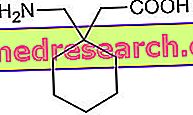Generality
Cystitis is an annoying inflammation (inflammation) of the bladder mucosa. It predominantly affects the female sex and is often accompanied by a continuous and painful need to urinate.

In these cases the infectious process can extend dangerously to the genital tract or to the upper urinary tract (see pyelonephritis).
Causes
Cystitis sometimes occurs without obvious symptoms or causes, other times it is secondary to contraceptive practices or sexual intercourse.
Inflammation is caused by bacteria that populate the last part of the intestine, including the colibacillus, or other pathogens in the first line. These germs can reach the bladder from the outside, passing through the urethra, or from the inside by propagation from nearby organs, or even via the blood.

As shown in the figure, the female urethra is shorter than the male one. This characteristic, associated with the absence of the bactericidal effect of prostatic secretions and other unfavorable anatomical peculiarities, such as the opening site most easily reached by faecal microorganisms, increases female susceptibility to cystitis.
During the voiding action, germs may rise as, while in the initial phase, when the bladder is opened, it follows that of the urethra in the near-distal sense, at the end of urination the urethra closes in the opposite direction, facilitating entry of germs into the bladder through a urethral-bladder reflux.
Once in the bladder the germs can multiply exponentially and produce inflammation of the mucosa known as cystitis.
DEEPENING ARTICLES
Select the topic of your interest or continue reading the article.
Cystitis in PregnancyChitite in ChildrenCause of CystitisHemorrhagic CystitisCure, Diagnosis and Prevention Interstitial CystitisCysteitis Symptoms Drugs for the treatment of cystitisDrugs for hemorrhagic cystitis Drugs for cystitis in pregnancy Diet and Cystitis Bearberry Remedies Natural remedies for cystitis Cycle disease and cure cystitis? Mannose against cystitis
Epidemiology
It is estimated that a percentage of women between 10 and 20% will suffer, at least once in their lifetime, from a urinary tract infection; according to other statistics, at least one woman in two will suffer from cystitis. The incidence of the disorder increases considerably with advancing age, it is estimated that around 20-50% of women over 60 suffer from this disorder. The cause is to be found in some problems related to menopause, such as estrogen deficiency and dislocations of the pelvic organs.
In humans, without anatomical abnormalities in the urinary tract, cystitis is often associated with bacterial prostatitis. Also for males the incidence of cystitis, especially those due to obstructive phenomena, increases in old age.
Symptoms Cystitis
To learn more: Symptoms Cystitis
Clinically, cystitis is characterized by the following irritative symptoms:
- pollakiuria: transient or permanent increase in the number of micturitions during the 24 hours, accompanied by the reduction of the empty volume for each voiding act;
- dysuria: difficulty in occasional or continuous urination, urination can be slow and not very abundant; all this requires excessive effort, the muscles appear contracted and the jet can be modified in volume or shape (deviated, tortuous, etc.) or stop suddenly and involuntarily;
- burning or pain during urination, sometimes accompanied by chills and cold;
- bladder tenesmus: painful spasm followed by the urgent need to urinate;
- cloudy urine, sometimes smelly;
- sometimes hematuria or pyuria is also present, terms used to indicate, respectively, the presence of blood and pus in the urine.
In general, acute and uncomplicated cystitis does not cause fever, when the temperature rises considerably it is possible that the infection has spread to the upper urinary tract.
The phenomenology of chronic cystitis is similar to that of acute cystitis but characterized by milder symptoms.
Causes
The bladder has a remarkable resistance to infections and under normal conditions the urine it contains is sterile. However, there are particular conditions that make the organism more susceptible to bacterial attack. These microorganisms can reach the bladder by ascending (ascending along the urethra after emission with the feces), descending (descending from the kidney) or blood. Cystitis can therefore manifest itself due to the presence of numerous predisposing conditions:
- debilitation of the immune system following antibiotic therapy, irregular nutrition or excessive stress;
- physical or mental fatigue;
- poor or excessive intimate hygiene is a common risk factor for cystitis;
- use of internal absorbents;
- use of the diaphragm and spermicidal creams that decrease vaginal acidity favoring bacterial contamination;
- pants or overly tight underwear;
- sexually transmitted diseases such as gonorrhea or blenorrhoea;
- chemical agents;
- malformations of the urinary tract can predispose to cystitis;
- sexual relations;
- use of the catheter;
- urethral strictures or narrowings;
- presence of foreign or pathological bodies in the bladder (stones or tumors);
- diverticula;
- prostatic hypertrophy;
- diabetes: the presence of glucose in the urine (glycosuria) promotes bacterial growth.
Cystitis - Video
Directly from the MypersonaltrainerTv studies, this video comprehensively deals with the issue of infectious bacterial cystitis, focusing on the causes, risk factors, symptoms and rules for healthy prevention, also with the help of natural remedies.
Cystitis - Video: Causes, Symptoms, Treatment
X Problems with video playback? Reload from YouTube Go to Video Page Go to Wellness Destination Watch the video on youtube



